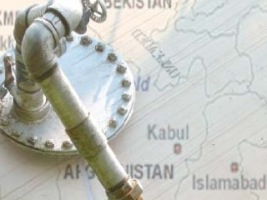Turkmenistan, China Reach New Energy Deals
By Tavus Rejepova (the 16/10/2013 issue of the CACI Analyst)
Turkmen and Chinese energy officials, in the presence of Turkmenistan's and China's Presidents Gurbanguly Berdimuhamedov and Xi Jinping, signed a number of new agreements and contracts on September 3-4 on the development of Turkmenistan's giant Galkynysh (Renaissance) gas field and to increase the supply of Turkmen gas to China to 65 billion cubic meters (bcm) per year by 2020. A total of thirteen bilateral documents including the energy sector deals were signed to bring the Turkmen-Chinese cooperation to a new strategic level.
Turkmenistan and Afghanistan Sign Agreement Over TAPI Gas Pipeline
by Tavus Rejepova (the 08/07/2013 issue of the CACI Analyst)
On July 9, the Chairman of Turkmenistan’s State company Turkmengaz and the Chairman of Afghanistan’s Gas Corporation signed a gas sale-purchase agreement (GSPA) on the sidelines of the 17th meeting of the Steering Committee over the construction of the Turkmenistan-Afghanistan-Pakistan-India (TAPI) gas pipeline project in Ashgabat.
Shah Deniz Consortium Opts For Westward Gas Exports Through Trans-Adriatic Pipeline
by Mina Muradova (07/10/2013 issue of the CACI Analyst)
The Shah Deniz consortium has announced its selection of the Trans Adriatic Pipeline (TAP) as the route for transporting gas from the Caspian Sea to Europe. The choice of TAP over the rival pipeline Nabucco West determines a route that will be used to diversify gas supplies to the European market in order to reduce European dependence on Russian gas.
TAPI: Time for the Big Push
by Gulshan Sachdeva (07/10/2013 issue of the CACI Analyst)
Despite many positive developments in the last few years, the future of the ambitious TAPI gas pipeline project is still in doubt. All four partner countries are making serious preparations for the project. However, the uncertainty surrounding post-2014 Afghanistan has dampened the motivation among major energy companies to act as lead consortium partners of the project. In these circumstances, multilateral agencies like the Asian Development Bank may have to play a crucial role in salvaging the project. Likewise, if the U.S. administration is serious about its support for TAPI, it should put its full diplomatic and financial weight behind it.

Russia and Azerbaijan Terminate Baku-Novorossiysk Agreement
by Mina Muradova (06/26/2013 issue of the CACI Analyst)
Russia and Azerbaijan have recently terminated two strategic agreements. In May, the Russian government terminated a 1996 deal to transport oil from Azerbaijan through its pipeline system. The agreement on transporting Azerbaijani oil via the Baku-Novorossiysk pipeline envisaged the transit of at least five million metric tons of oil a year, with a tariff of about US$ 15.70 per metric ton.


